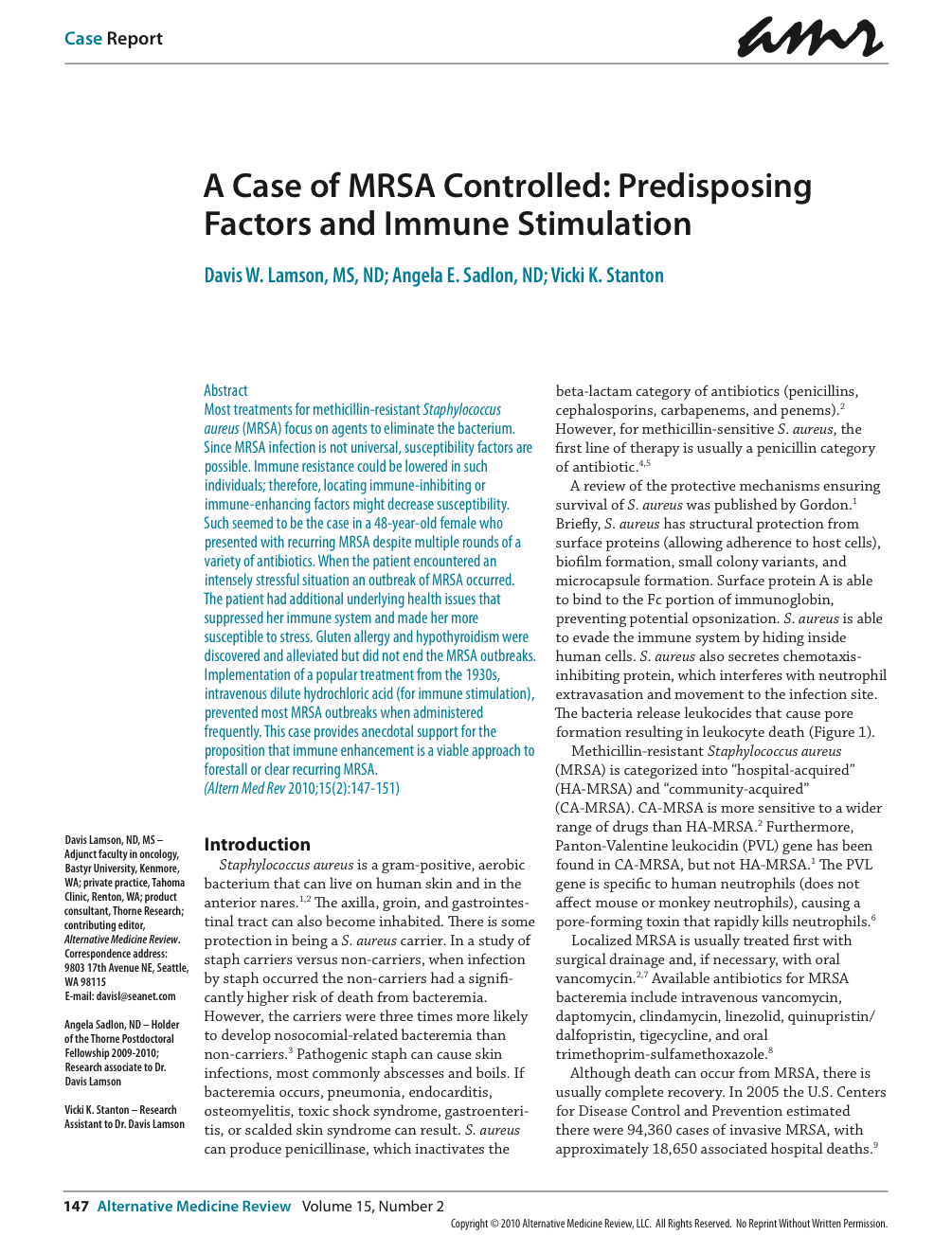Abstract
Most treatments for methicillin-resistant Staphylococcus aureus (MRSA) focus on agents to eliminate the bacterium. Since MRSA infection is not universal, susceptibility factors are possible. Immune resistance could be lowered in such individuals; therefore, locating immune-inhibiting or immune-enhancing factors might decrease susceptibility. Such seemed to be the case in a 48-year-old female who presented with recurring MRSA despite multiple rounds of a variety of antibiotics. When the patient encountered an intensely stressful situation an outbreak of MRSA occurred. The patient had additional underlying health issues that suppressed her immune system and made her more susceptible to stress. Gluten allergy and hypothyroidism were discovered and alleviated but did not end the MRSA outbreaks. Implementation of a popular treatment from the 1930s, intravenous dilute hydrochloric acid (for immune stimulation), prevented most MRSA outbreaks when administered frequently. This case provides anecdotal support for the proposition that immune enhancement is a viable approach to forestall or clear recurring MRSA. (Altern Med Rev 2010;15(2):147-151)

